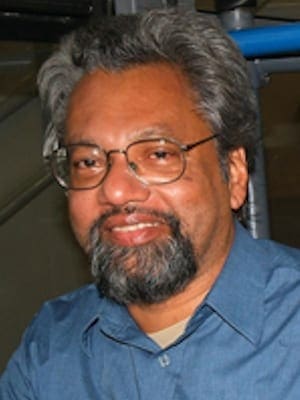While hate crimes committed by and against Muslims in Europe receive increasing attention in the global media, the rise of Hindu vigilantism in India receives scant coverage.
Yet, the loss of life and the levels of terror under which Muslim and other religious minorities in India now live far exceed anything experienced in the West.
For example, a 15-year-old Muslim boy, Hafiz Junaid, was stabbed to death on board a Delhi-Mathura train on June 22.
His and his three brothers had boarded the train at Delhi’s Sadar Bazar Station after shopping for Eid, the end of the Muslim holy month of Ramadan.
They were set upon by a mob, which repeatedly taunted them with cries of “anti-nationals” and “beef eaters.”
In the fight that ensued, Junaid’s three brothers were hospitalized with stab wounds. The police have hitherto done nothing to apprehend the killers.
India is an exporter of beef. But ever since the 19th-century Hindu nationalist movement, under the leadership of the Arya Samaj, made “Cow Protection” a political slogan, it has from time to time been an excuse for vigilante groups to harass and even murder Muslims in the name of “protecting our religion and culture.”
Cows are deemed more valuable than some human lives. Hence, the term “sacred cow” that has passed into the English language to denote any object that is immune to criticism.
Under the current Bharatiya Janata Party (BJP) government in India, cow-protection groups, operating with impunity, have killed Muslims and low-caste peoples simply for transporting cattle. In BJP-ruled states, the lynching of Muslim men by Hindu mobs is becoming commonplace.
The prime minister, Narendra Modi, and his cronies in the central government remain silent over these killings.
But so do many affluent Hindu Indians in the U.S. who welcomed Modi to the U.S. in late June and who are intent on exploiting the Trump regime’s ignorance and fear of the Muslim world.
A week after Junaid’s murder, Modi was in Washington D.C., wooing the tech giants to invest in India, while the country itself is deteriorating into a state of near anarchy.
The BJP-ruled Gujarat state, where Modi was formerly chief minister and blithely ignored repeated pogroms against Muslims, recently amended its Animal Preservation Act of 1954 to extend the maximum sentence for cow slaughter from the present seven-year jail term to life imprisonment.
Anybody familiar with Indian cities knows that cows are treated far worse in India than in other countries. Malnourished cows, their ribs painfully sticking out and munching on discarded polythene bags, are a common sight in Indian cities.
But anyone familiar with Indian politics knows that such contradictions are central to the whole ideology of Hindutva (an expression of Hindu nationalism). Every nationalist needs a bogeyman, and Pakistan and the Muslim and Christian minorities in India serve that end.
Moreover, academic scholars are under pressure to rewrite not only the history of India but also their specialist courses to obliterate or diminish the contribution of Muslim, Christian and other minority communities.
Liberal and Marxist scholars and journalists, no less than Christians and Muslims, are often the targets of vicious personal attacks.
Christian nongovernmental organizations working among the poor (largely ignored by vocal Hindu politicians except at election time) are harassed constantly with allegations of making “unethical conversions.”
Yet another irony is that the colonial penal code relating to “sedition” has often been invoked in recent months to justify assaults on anybody who criticizes India’s policy or military actions in Kashmir.
Pakistani actors cannot appear in Indian movies. A group of Muslims who cheered Pakistan’s recent victory in the international cricket championship was set upon by a gang who charged them with “sedition.”
Such are the ridiculous depths to which Indian society has sunk. Imagine all those Indians in the United Kingdom who, despite being British citizens, cheer the Indian cricket team when they defeat England being hauled off to jail.
But all is not yet lost. Amnesty International India has condemned hate crimes against Muslims, and civil society organizations have continued to mobilize people to express their revulsion at police inaction and tacit governmental support for the growing culture of Hindu vigilantism.
Several thousands of concerned citizens have marched in Indian cities under the slogan “Not in My Name,” following the murder of Junaid and the spate of recent mob lynchings.
If more Hindus in India and the so-called Indian diaspora in the West do not raise their voices in support of such civil society defiance, they should not be surprised if the fear, anger and frustration of young Muslims becomes channeled in the direction of ISIS and other radicalized Islamist groups.
If there is one lesson we have learned in South Asia in the post-colonial era, it is that extremism breeds extremism, and the silence of elites strengthens the voice of the mob.
Is a government that fails to protect its minorities a “failed state”?
Vinoth Ramachandra is secretary for dialogue and social engagement for the International Fellowship of Evangelical Students. He lives in Sri Lanka. A version of this column first appeared on his blog and is used with permission.
Secretary for dialogue and social engagement for the International Fellowship of Evangelical Students. He lives in Sri Lanka.

